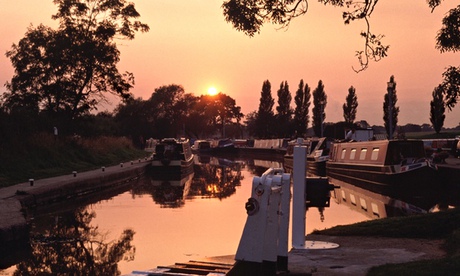
Lucy Tunstall, born in London in 1969, published her first collection, The Republic of the Husband a few months ago. She belongs, at least on the evidence of this collection, to a wittily anti-realist wave of younger women poets (Tara Bergin, Heather Philipson, and Jane Yeh are others) who channel a subversive inheritance from Jo Shapcott and Selima Hill (and, ultimately, Stevie Smith and Edith Sitwell) for a streetwise, theory-aware, postmodernist generation.
Tunstall strikes a note that’s clearly her own. Alienation often seems less of a private affliction than a shared family trait , and characters who might have fired a comic novel find alternative lyrical shapes for their stylish volatility in her work. This week’s poem, Signal Flags (Without You It’s Chaos) centres on the comedy of failed sexual communications, while disturbing several genres: the photograph/home movie poem, the love poem, the period piece. It may start with a quaintly realistic portrayal, but it’s not in the business of realistic portraiture. As an unrequited love poem, it makes fun of the genre, yet it’s no parody. The possibility of a fierce, painful sincerity is always left open.
The object of the speaker’s interest, first seen cycling along a towpath and shouting instructions to “a boatful of young historians” (training for the Oxford-Cambridge boat race?) seems to be separated from his admirer by time and class. Presumably middle-aged (paunched and spectacled) he’s Kodachrome with a tinge of sepia; in fact, more than the “young historians”, he himself is history. At the same time he’s a symbol of order and control (“without you it’s chaos”). If the speaker is in love with him, it’s in an “Edwardian” style, like his plummy elocution, whereby women admire and need men for the “manly” virtues of discipline and rationality they bring to a relationship.
A shipping metaphor born of the riverbank setting and a pun (“I catch your drift”) launches the speaker on a brilliant comic analogy of maritime communications via signal flags. The commands the male ship sends are either irrelevant or impossible to carry out, and in fact the speaker has known it was hopeless from the start – “No good telling me …”. The messages culminate in what we may assume is an excuse, but which could of course signal the genuine defeat induced by false social expectations: “I’m astray, I cannot tow you.”
In Tunstall’s reinvention of signalling code, yellow is assigned to quarantine and black to shipwreck, dolorous mood-colours vividly contrasted with the earlier “white on blue” and “scarlet” of futile optimism. Shipwreck, the speaker suggests, is “our one hope”. There’s no response, but the desperation seems to take the speaker across a psychological line and into new territory in the final tercet.
It’s a wonderful change of scene. A location that seemed quintessentially English is now transformed by “a sunset in the French style”. Its eloquent, Impressionist colours are listed in parenthesis as if to suggest they hardly needed to be mentioned, since the speaker, for whatever reason, has no further imperative to struggle with communication. These colours are variously muted, rich, iridescent and indeterminate, and have little in common with the matt clarities of the signal flags. The speaker has sailed away from “the republic of the husband” into a feminine Kodachrome of pure aestheticism or pure imagination … unless, of course, she has taken the rowing-instructor prisoner and he’s now locked up below deck.
Signal Flags (Without You It’s Chaos)
In faded Kodachrome you cycle the towpath,
juggling stopwatch, megaphone, spectacles, paunch,
booming plummy instructions to a boatful of young historians.
Without you it’s chaos.
Those Edwardian vowels carry over the river.
I catch your drift, imagine an encounter
tall ship to tall ship in open water.
No good telling me (white over blue)
Engage the enemy more closely
or even (scarlet) Give wine to the rowers
for I’m astray, I cannot tow you.
On one of these dark days, hugging my misery,
I can lay hands on nothing but yellow
for Quarantine, black for Shipwreck. Our one hope?
Evening, and a sunset in the French style
(dawn, fawn and isabelle, moiré, dead-leaf,
blue Turkish, carmine, flax-grey, purple).

